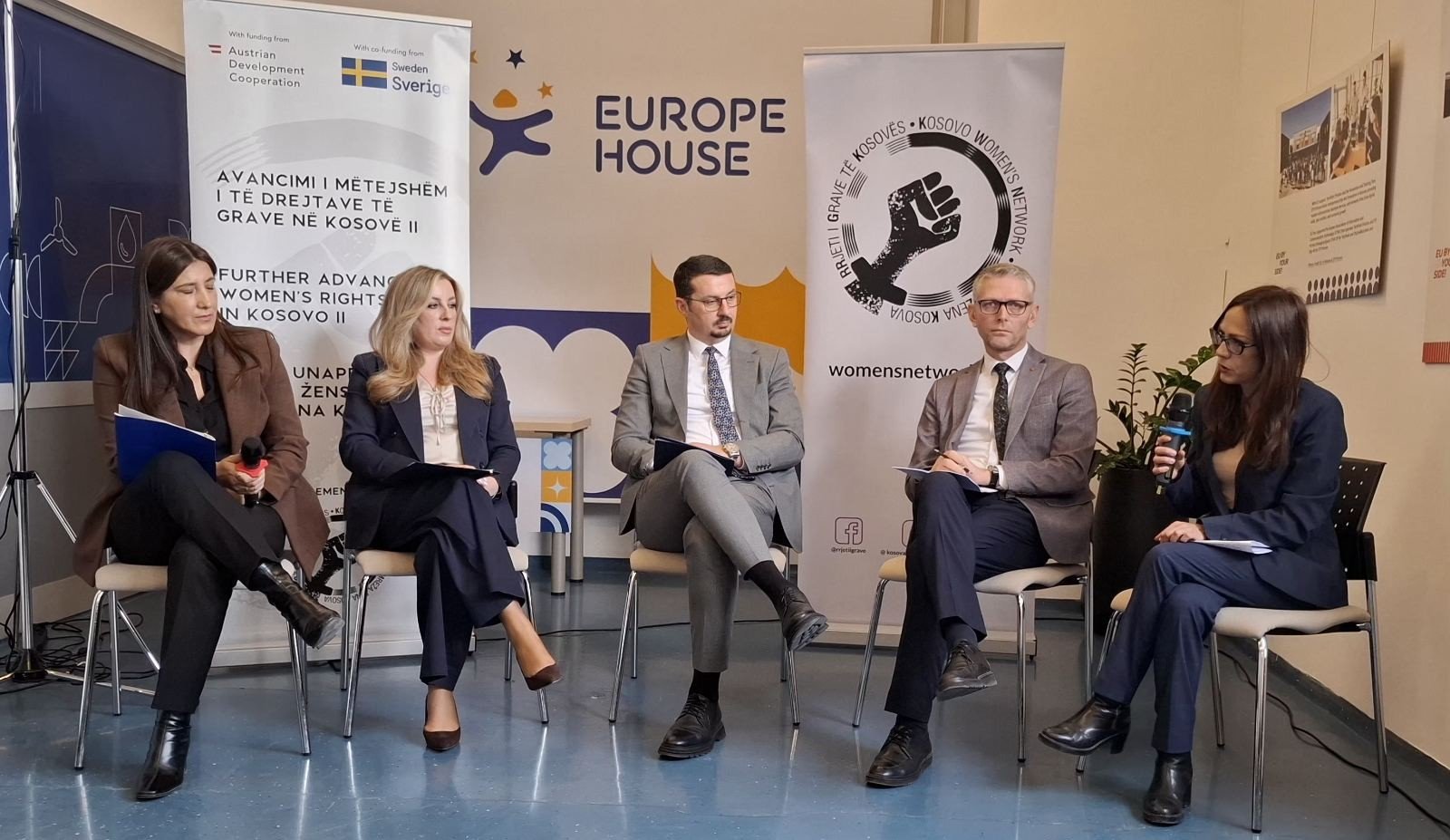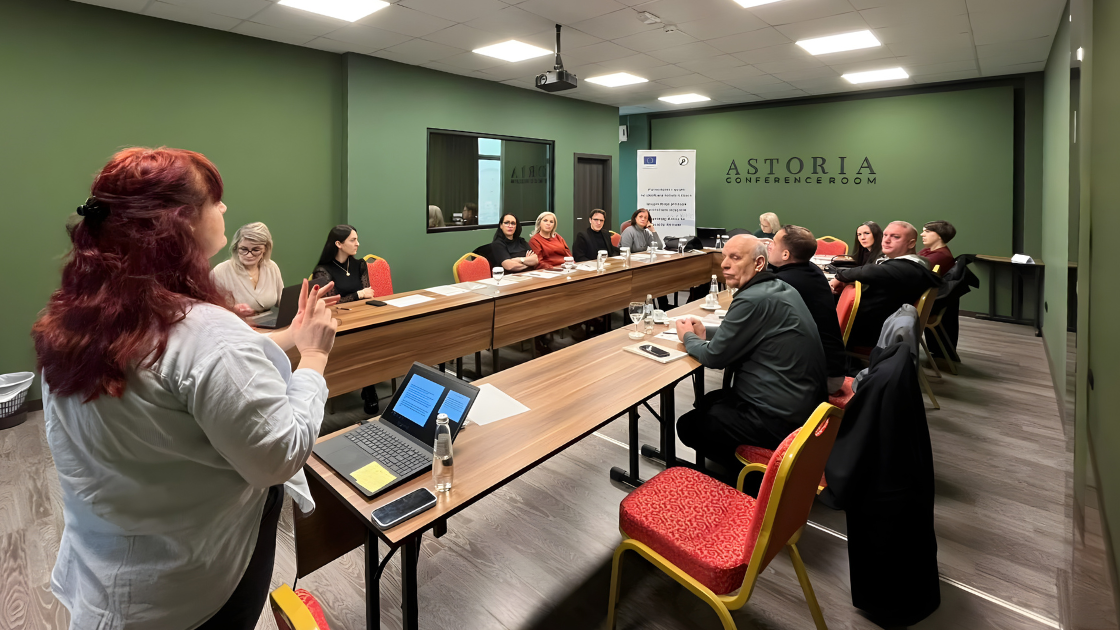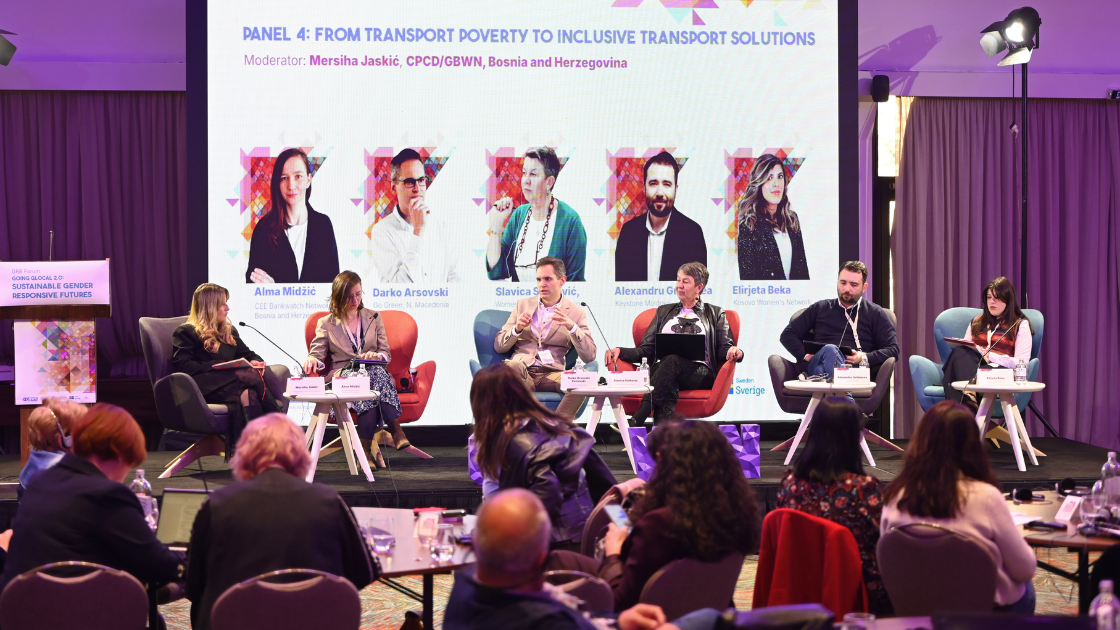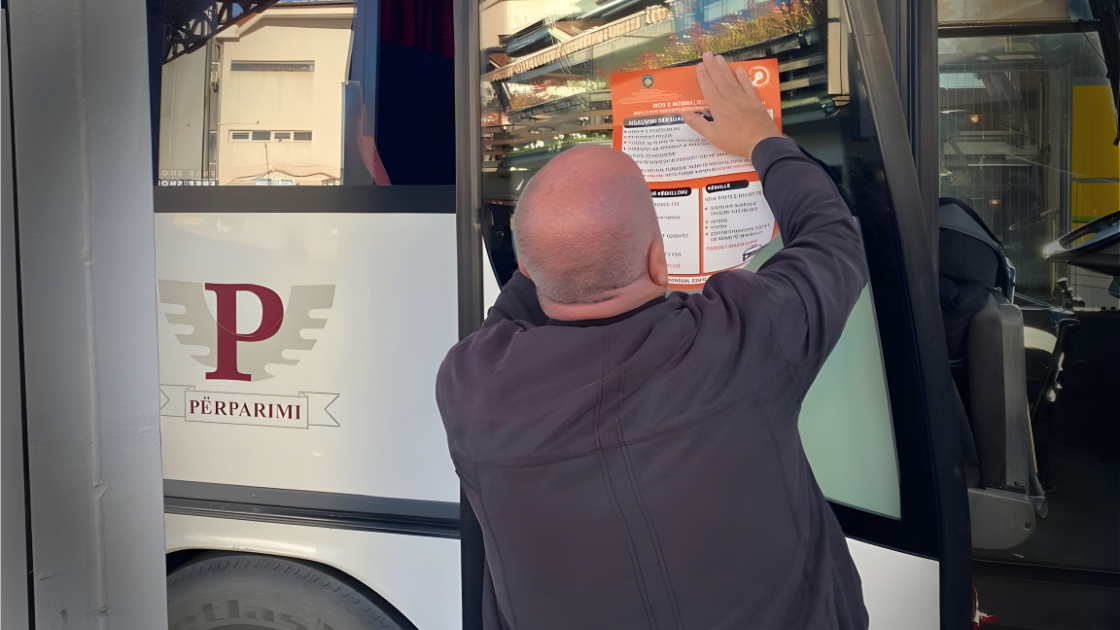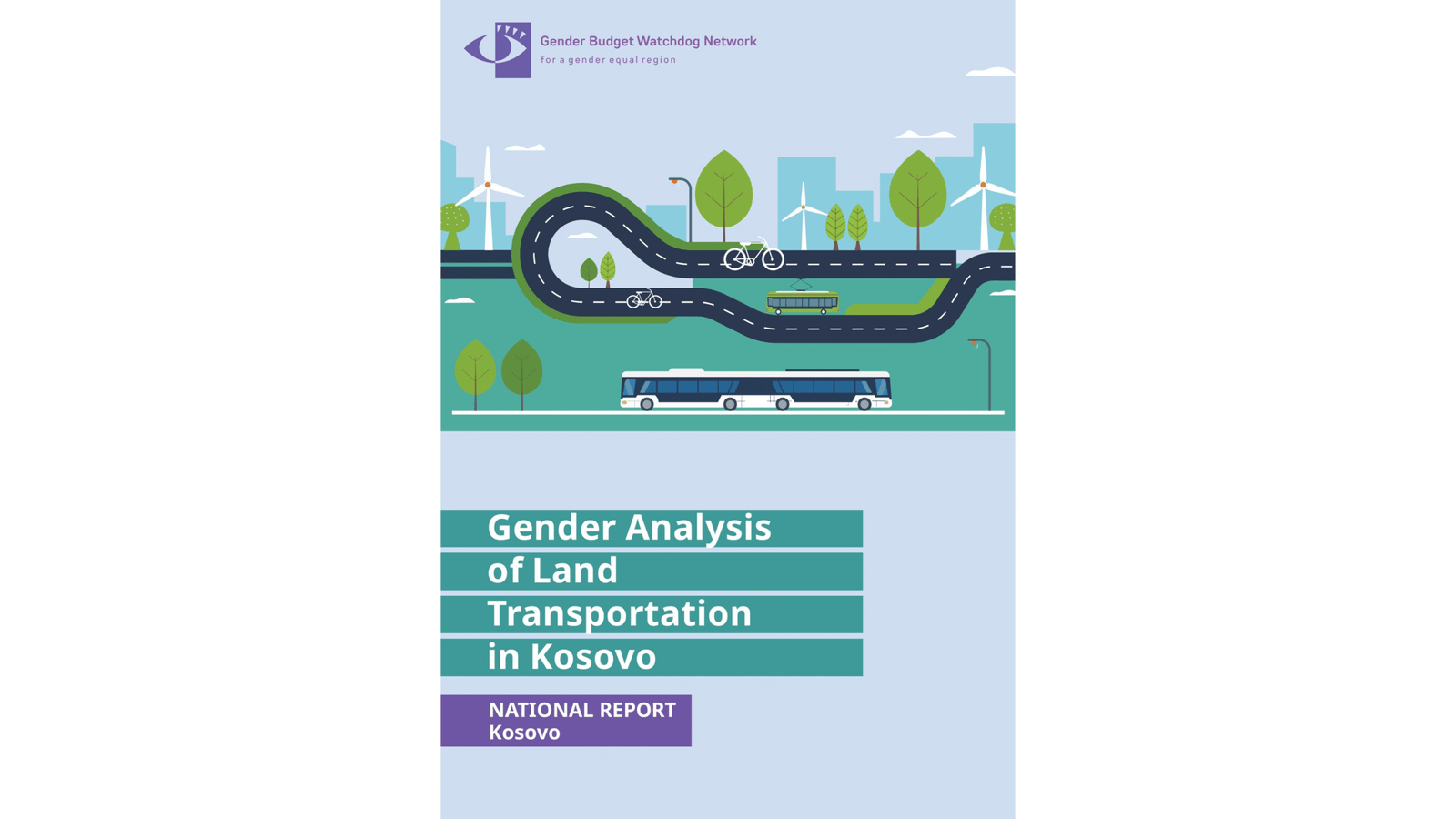The Kosovo Women’s Network (KWN) has consistently supported the technical staff of the Kosovo Assembly, who have been on strike for over a month. In October, KWN staff visited the strikers and made public appeals for urgent solutions.
On October 14, KWN released a statement to the media, emphasizing that the neglect of these workers’ demands was unacceptable and called for concrete action. On October 17, KWN sent an official letter to Assembly Chairman Glauk Konjufca, urging an immediate solution, as these workers, though employed by a private company, serve the institution. In a show of solidarity, KWN staff organized a symbolic action by placing banners with the message “SHAME!” on the Assembly doors.
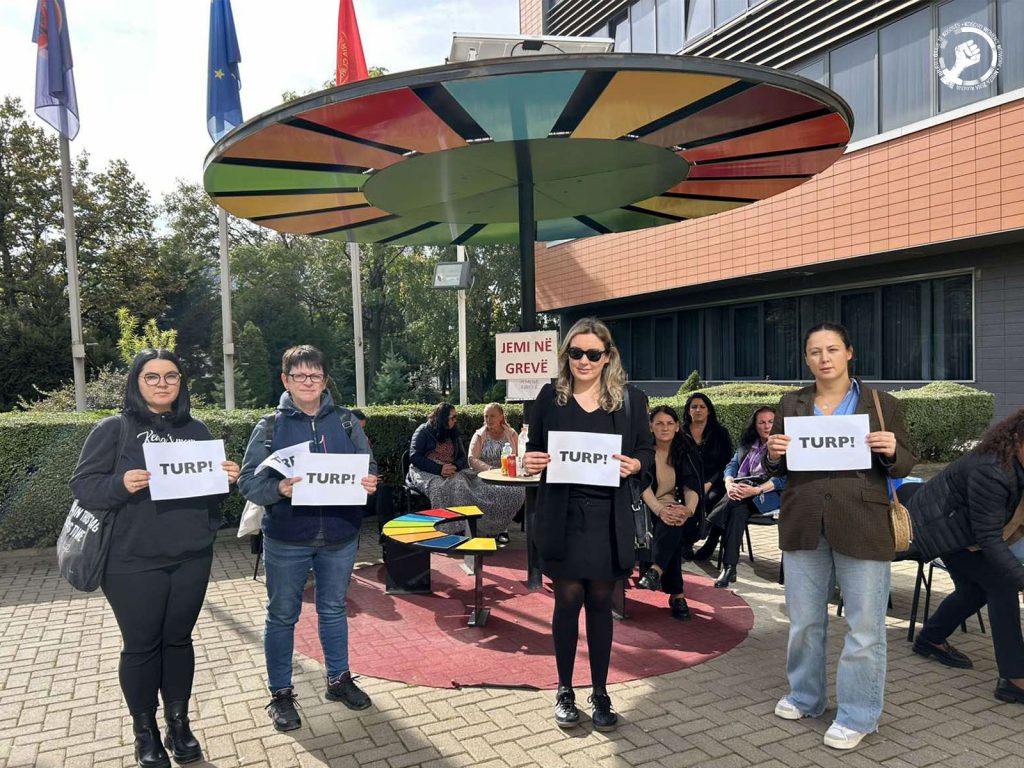
After more than a month of striking without any response from the relevant authorities, one of the workers collapsed and required medical treatment. KWN responded by reiterating that the situation was unacceptable and calling for immediate action. ATV Television requested a statement from the Network regarding the situation and the worker’s condition.
Fortuna Shkodra Haliti, KWN’s Public Relations Coordinator, highlighted that the strikers are seeking improved working conditions. She added that the Network will continue its advocacy and actions until a solution is found for the striking women.
As part of the “Red Shoes” campaign, KWN visited the striking workers to encourage them to remain strong. The Network reaffirmed its support for women and their rights, pledging to stand by them whenever needed.


